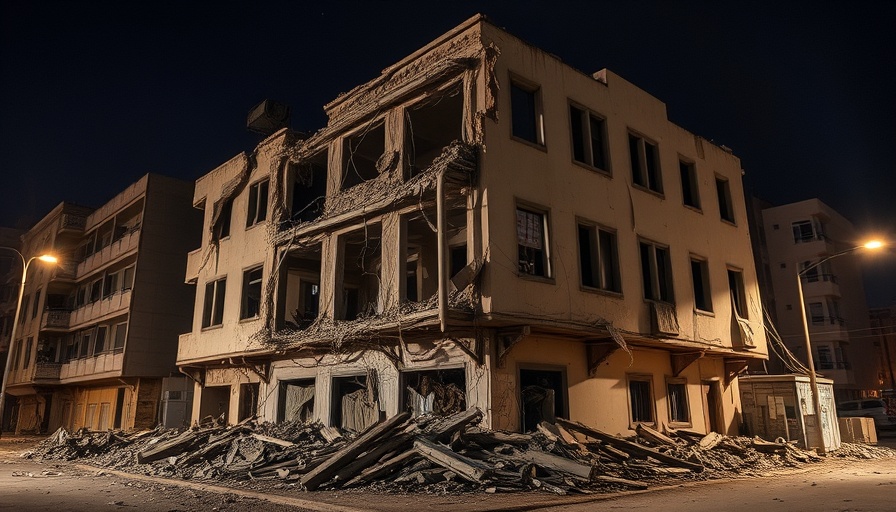
The Tragic Consequences of Geopolitical Strikes
Early on April 1, 2025, Israel launched a targeted airstrike on a building in the southern suburbs of Beirut, resulting in the tragic deaths of at least three individuals, with several more reported injured. This attack was carried out under the assertion that it aimed to eliminate a member of Hezbollah connected to volatile activities against Israel, weaving it into the larger narrative of ongoing tensions between Israel and Hezbollah.
Understanding the Recent Surge in Violence
The strike follows closely on the heels of an earlier assault by Israel on the Lebanese capital just days before. This string of military actions marks a significant moment in the sensitive landscape of Middle Eastern politics, particularly after a ceasefire was observed since November. These incidents illuminate the fragile nature of peace in the region and the underlying currents that lead to escalation, where miscommunications can have fatal outcomes.
Implications for Lebanese Civilian Safety
Safety for civilians in regions experiencing frequent military strikes is a growing concern. The Lebanese Health Ministry reported that at least seven civilians were wounded during the latest strike, highlighting the catastrophic toll such actions can have on innocent lives. In Beirut's densely populated suburbs, the perception of stability can shift rapidly, leaving families vulnerable to the impacts of geopolitical strife. The strikes not only endanger lives but also disrupt community cohesion, leaving residents fearful and uncertain about their futures.
Political Ramifications and Future Projections
As tensions mount, the airstrikes could lead to significant political consequences for both Israel and Lebanon. Analysts fear that continued military aggression could revive widespread conflict across the region, with repercussions felt as far as neighboring countries and beyond. The targeting of military operatives amidst civilian populations raises moral and ethical questions about warfare. With international relations already strained, this incident might force global powers to reevaluate their stances on Middle Eastern conflicts, potentially igniting dialogues on peace-building initiatives.
The Role of Hezbollah and its Allies
Hezbollah's silence in response to the airstrike underscores the complexity of this conflict. The group has historically positioned itself as a defender of Lebanese sovereignty, but how it will react to the latest developments remains to be seen. Their relationship with other regional actors, such as Hamas, complicates the picture further, suggesting that future engagements could draw in broader support or opposition from various allies.
Understanding the Public’s Perspective
The individuals caught in these conflicts often express a profound sense of helplessness, as their daily lives are interrupted by violence. The plight of families in southern Beirut, who seek safety away from hostilities, is marked by uncertainty. Civilian sentiments toward both Israeli strikes and Hezbollah’s military strategies reflect a broader desire for peace. The question remains: how can communities advocate for their safety amidst such tumultuous conditions?
How to Stay Informed Amidst Current Events
For residents in Central Florida and beyond, it’s essential to stay updated on international news and understand its implications locally. Engaging with trusted news sources, participating in community discussions, and supporting humanitarian efforts can enhance community awareness and foster a supportive environment for those affected by such geopolitical dynamics.
The recent attack serves as a stark reminder of the repercussions of ongoing conflict in the Middle East. As international observers, we must approach these discussions with sensitivity and compassion, advocating for peace and safety in affected regions.
 Add Row
Add Row  Add
Add 






Write A Comment